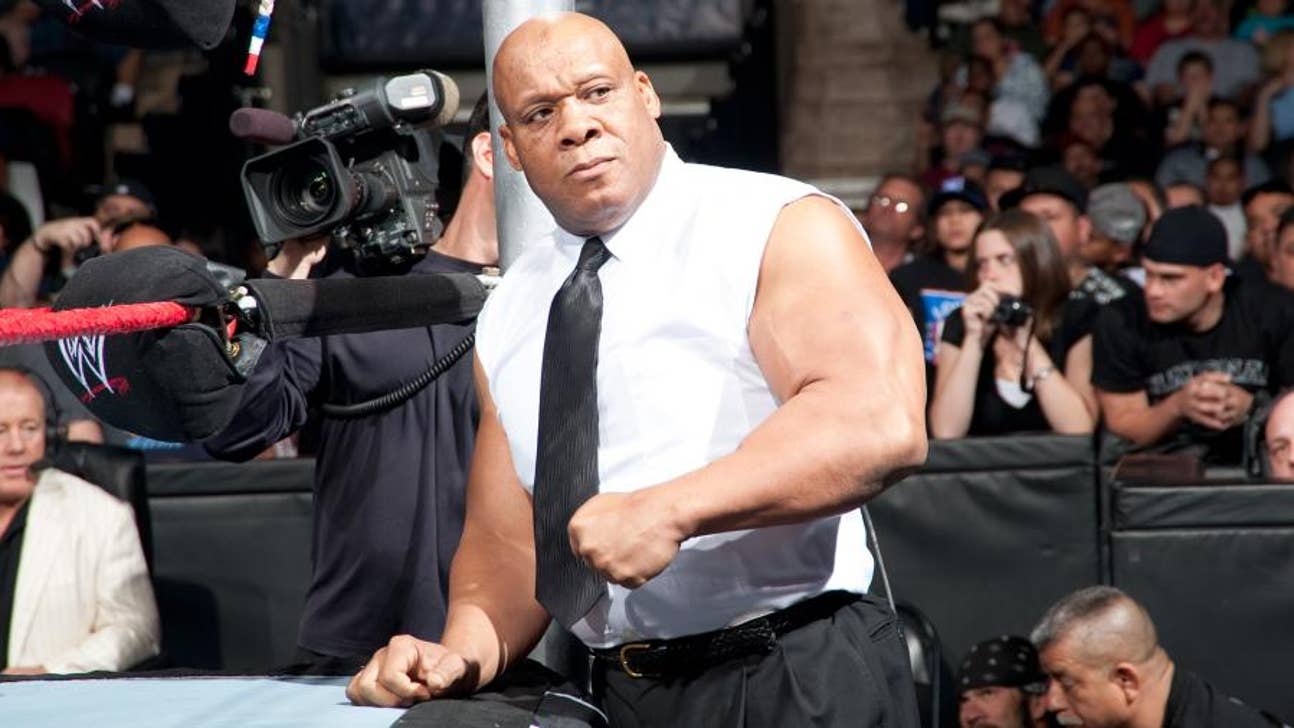
Each week during the month of February, we will highlight the contributions of one of the many African-American wrestlers who have helped shape the landscape of the WWE.During a time when professional wrestling was starting to come out from the shadows of circus tents and dirt floors, along came a power lifter and body builder named Anthony White (AKA Tony Atlas, Mr. USA, Black Superman, Saba Simba). His size and strength were more than enough to turn a few heads in a wrestling ring and in 1974, Atlas made his debut with the National Wrestling Alliance.Unlike other African Americans in professional wrestling, the career of Tony Atlas may very well be remembered more for missed opportunities than true greatness. The 1960s and 1970s were a tumultuous time for black people in the United States and the world of professional wresting was no different, a phenomenon that Atlas describes in great detail in his book “Atlas: Too Much Too Soon“. Despite performing in front ofDespite performing in front of sell out crowds around the country, he routinely found himself a victim of the backstage politics associated with black wrestlers because few (if any) wrestling promotions were willing to crown a black world champion. To this day, the NWA does not officially recognize Bobo Brazil’s victory over “Nature Boy” Buddy Rogers in 1962 which would have made Brazil the first African American pro wrestling world champion. As a result, many fans and experts defer to Ron Simmons as the first African American to win a pro wrestling world title when he defeated Vader 30 years later in 1992 for the WCW World Heavyweight Championship.Atlas came to the WWF in the early 1980s and was paired with another popular black superstar, Rocky Johnson, father of future superstar Dwayne “The Rock” Johnson. Together, the two men made history in 1983 when they defeated the Wild Samoans to become the first African Americans to win the WWF World Tag Team Championship. It would be Atlas’ only title run in the WWF. When Johnson left, Atlas was set to be offered an opportunity to win the Intercontinental Title, but had developed a drug habit that led to problems in and out of the ring. In his book, Atlas details how his drug use affected his attitude backstage. His actions would lead to his departure from the company in 1987:“I was so mad after my match that I pulled out my .357 Magnum and began to wave it around. Mere seconds after the gun cleared my gym bag, I had the whole dressing room to myself. Cyndi Lauper and David Wolfe were there that night. Cyndi was standing just a few feet from the dressing room door when Andre (the Giant) came running out.” [Chapter 17: The Downward Spiral]After leaving the WWF, Atlas would bounce between various promotions including IWC and WCW before coming back to the WWE in 2008 following his 2006 induction into the WWE Hall of Fame. He had a short run in the ECW brand (which had been purchased by WWE) followed by various appearances on the WWE main roster until he became a regular cast member on the WWE Network reality show Legends House.In a 2010 interview with Right After Wrestling Radio, Atlas spoke even more candidly about his struggles with addiction and their effect on his life:“In the early 80’s, I went to LA. It was my decision to get involved in drugs which screwed me up at the beginning of my career. I became homeless in 1989.”Atlas gave great shoots but was an average work interview on the mic at best. Thankfully, his muscular physique looked amazing in the ring and was a big draw for the business. Focusing so much on his physical appearance and not his wrestling ability may appear superficial but we have to remember that during his initial run simply being on television as an African American was a huge step forward and his tag team championship win undoubtedly paved the way for future tag teams such as the New Day to break records with their title reign.Related Story: WWE Black History Month: Ron SimmonsIn the end, the story of Atlas’ life is one about earning success, the dangers and temptations that come with it, and the ability to come out clean on the other side. Too often these superstars succumb to their vices and aren’t around to serve as an example for younger generations to learn from and grow. True to his name, Tony Atlas survived his ordeals, despite having a world of mistakes on his shoulders.More from Daily DDTWWE WrestleMania 33: Projecting the Intercontinental Championship Picture1 h agoWWE Elimination Chamber 2017: 3 Bold Predictions3h agoWWE: Is Luke Harper Main Event Material After WrestleMania 33?4h agoWWE NXT Results: Highlights, Analysis, and Grades for February 815h agoWWE Released a ‘List of Jericho’ to Buy Online (Photo)19h agoThis article originally appeared on